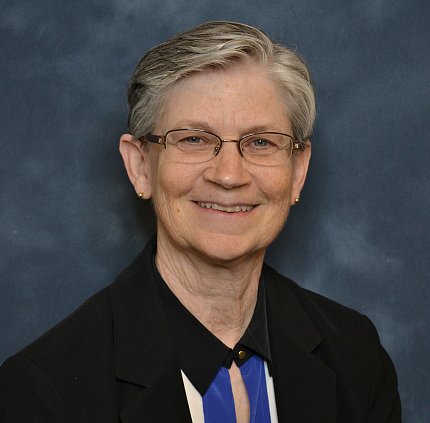RECOVER Initiative
Investigators Share Insights on Long Covid

More than 100 million Americans have contracted Covid-19 since the pandemic began, but many still can’t get over it. Their symptoms have persisted long after their initial infection.
Often called long Covid, the condition manifests in different ways, making it difficult to define and diagnose. To delve into the many unanswered questions, NIH launched the RECOVER initiative, encompassing researchers at hundreds of clinical sites across the country working to characterize and ultimately treat the condition.
Long Covid—which the CDC calls post-Covid conditions and NIH calls PASC (post-acute sequelae of SARS-CoV-2)—refers to a wide range of physical and mental health symptoms that persist, recur or first appear, 4 or more weeks after the acute phase of a SARS-CoV-2 infection. The condition can affect not only those who were severely ill, but also people who had mild or asymptomatic infections.
Several investigators recently discussed their observations and findings at the first talk of the RECOVER Research Review seminar series.
Characterizing Post-Covid Conditions
“Patients with post-Covid conditions often present with a complex clinical picture that makes diagnosis challenging,” said Dr. Elizabeth Unger, chief of CDC’s Chronic Viral Diseases Branch. “There is no single diagnostic test to identify [long Covid],” and some people who experience lingering symptoms never had a positive SARS-CoV-2 test.”
Meanwhile, “symptoms reported may not fit recognizable clinical paradigms,” she noted, so clinicians often have a tough time navigating care. “As a result, patients can feel misunderstood and stigmatized by their care providers.”

CDC has recorded multiple different persistent post-Covid symptoms, noting more than 200 have been reported. The most common include fatigue, “brain fog,” cough, dyspnea (increased respiratory effort), chest pain, muscle pain, gastrointestinal issues and depression. Researchers are also studying multi-organ effects that begin weeks after a Covid-19 infection, including neurological conditions, kidney and cardiovascular damage, diabetes and skin conditions.
“Patients and patient advocacy groups have brought attention to the profound disability associated with post-Covid condition,” noted Unger. Though the duration and extent of impairment varies, many long-Covid patients report their persistent symptoms interfere with essential activities in work and home life.
A newly published CDC study with data from 42 health care systems compared patients without evidence of Covid-19 with those who received medical care for any reason up to 5 months following a confirmed Covid-19 diagnosis.
“Children and adults with a positive Covid-19 test were more likely to receive a diagnosis for a new condition or have new symptoms in the 5 months after acute infection compared to those who tested negative for Covid-19,” said Dr. Sharon Saydah, senior scientist in CDC’s Respiratory Viruses Branch, who co-leads the Post-Covid Conditions team in CDC’s Covid-19 Response with Unger. The most common lingering symptoms reported—fatigue, shortness of breath and heart rate abnormalities—were more pronounced among those who had more severe cases of Covid-19.
Research findings ultimately could extend beyond helping long-Covid patients. Several core symptoms of post-Covid conditions—particularly fatigue, cognitive dysfunction, sleep disturbances and pain—mirror other post-viral and autoimmune syndromes.
Unger said, “Systematic study of the large number of post-Covid condition patients compared to these other conditions may begin the process of understanding how to intervene and treat [other similar] chronic syndromes.”
The Role of RECOVER
“Ultimately, to get definitive answers [to understand and address PASC], we need a massive, well-curated, well-performed, well-resourced type of initiative that RECOVER is,” said Dr. Steven Deeks, professor of medicine, University of California San Francisco, and lead investigator of a RECOVER clinical trial at UCSF.
The RECOVER initiative is recruiting toward a national cohort of 17,000 people, including 2,000 uninfected controls, with attention to diverse populations of all ages in urban and rural areas.

Researchers have sought patients in the acute setting, within 30 days of infection, to follow them over time. “This work is based on the assumption, reasonably, that a lot of the determinants of what happens in the future plays out in the first weeks,” said Deeks.
In addition, the initiative is recruiting people who had Covid-19 in the remote past to understand and contrast the variations in earlier waves. “I do believe very strongly what happened to them is quite distinct from what’s happening now,” said Deeks. “I also believe over time we’re going to learn that having access to vaccines will have a huge impact on who gets PASC and on what happens long term.”
In the smaller cohort Deeks leads, called LIINC (Long-Term Impact of Infection with Novel Coronavirus), his team observed a significant decline on cardiopulmonary exercise testing in those with PASC. He also noted the disabling effects of PASC in previously healthy people.
“The most striking cases are the people who were absolutely healthy, got Covid, weren’t particularly sick…and now a year later are quite disabled,” he said.
Many individuals with PASC do improve in the first 3 or 4 months, Deeks noted. But after 4 months, there’s a subset who do not appear to improve over time. Some of them remain disabled, unable to work.
Data will continue to emerge on the biology of PASC and potential targetable pathways for treatment. “One of the great strengths of RECOVER,” said Deeks, “is the clinical phenotyping. This is what we desperately need.”
Pediatric PASC
Among the populations under study are adolescents, children and infants.
“While severity of illness is lower for children,” said pediatrician Dr. Valerie Flaherman, “prolonged illness and long-term consequences can occur for both children and young adults, with persistent symptoms over time and organ damage potentially leading to cognitive, psychiatric and neurodevelopmental impairment.”

Flaherman, professor of pediatrics and epidemiology at UCSF, provided preliminary results from the first several hundred infants in her pediatric PASC cohort including those with and without congenital exposure to Covid. Although overall these children appeared well, she said, looking at neurodevelopmental screening at 12 months of age showed the cohort overall scored lower than historical control groups in gross motor, fine motor, problem-solving and social skills.
RECOVER researchers are studying multiple cohorts, including the trajectory of PASC in children who have underlying conditions, health concerns for infants exposed to Covid in the womb, and children who contracted MIS-C, multi-system inflammatory syndrome, a rare but serious condition in children following Covid infection.
Researchers continue to assess the neurological, respiratory and other long-term symptoms in the pediatric population. “These early changes following Covid infection may have long-term downstream effects for our future population health,” Flaherman said.
Looking for Clues
To date, there are still more questions than answers about the long-term health effects of Covid-19.
Understanding the epidemiology is key to understanding variations among different populations, helping doctors provide better care and accelerating solutions, said seminar discussant Dr. Lorna Thorpe, an epidemiologist co-leading the RECOVER real-world data cohorts using electronic health record networks, and director, Division of Epidemiology at NYU Langone Health.
“We look for clues initially, risk factors subsequently and ultimately the biologic causal pathways,” said Thorpe, “and that expedites our ability to identify effective treatments and solutions.”
